Associate Members
Mohammed Absar
Honorary Senior Lecturer University of Manchester, Surgical Oncologist and former Director of Greater Manchester Pathway Board for Breast

Clinical based research on treatment of breast cancer in elderly women and associated treated variation. Also younger women with breast cancer and effect of socio-economy factor. Cosmetic outcome following surgery and Radiotherapy.
Nisha Ali
Consultant histopathologist at Wythenshawe Hospital, Manchester University NHS Foundation Trust
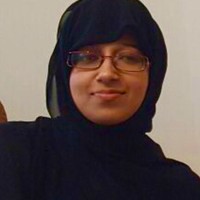
Research lead for breast pathology at the department of pathology, Wythenshawe Hospital.
Named pathologist for ATNEC clinical trial at the Nightingale Centre, Wythenshawe Hospital.
Reviews and marks triple negative breast tumour samples for research and PhD projects at CRUK, Manchester.
Research interests include intraoperative painting of breast margins by surgeons.
Carmel Anandadas
Consultant Clinical Oncologist at The Christie NHS Foundation Trust

Specialises in treatment of breast cancer.
Breast radiotherapy research and technical lead at The Christie.
Research interests include breast radiotherapy and patient reported outcomes.
Marianne Aznar
Professor of Radiation Oncology Physics
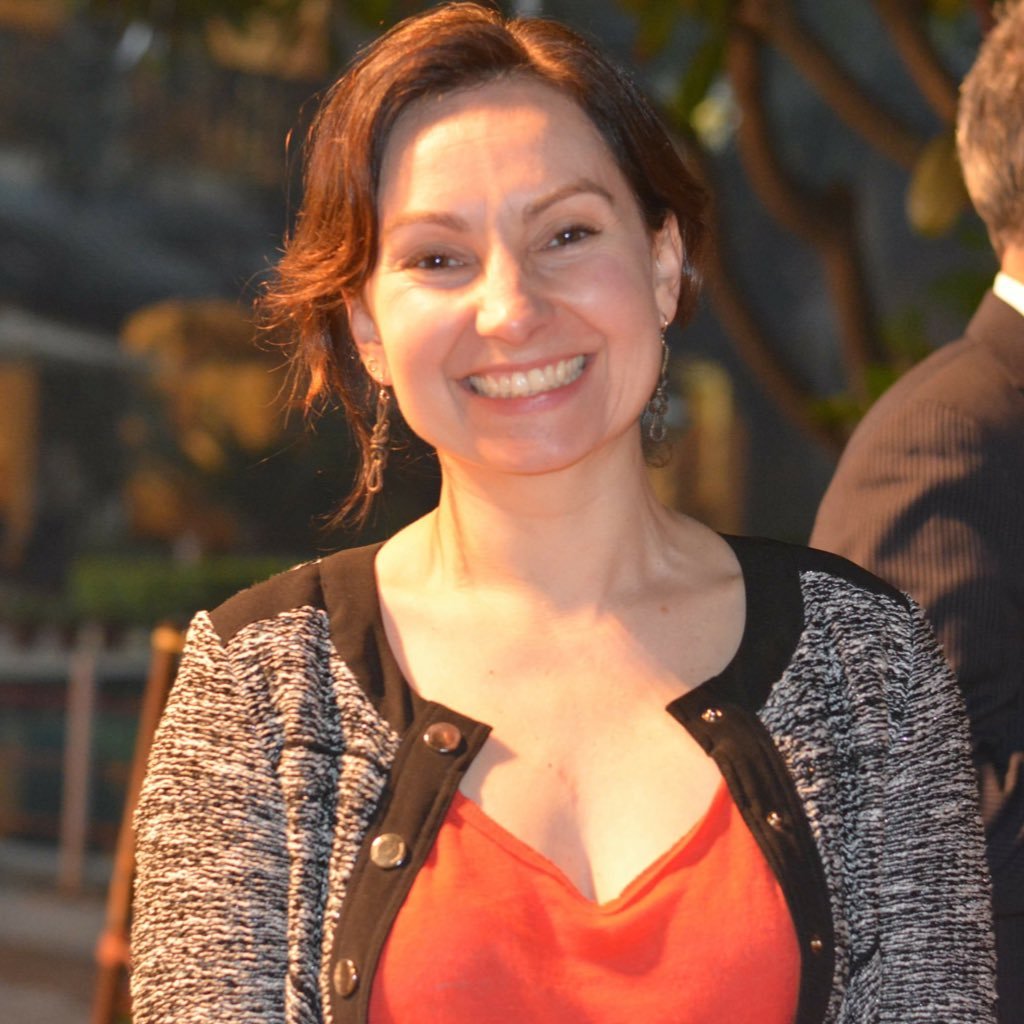 Marianne is Professor of Radiation Oncology Physics at the University of Manchester/The Christie Hospital. Her research focuses on the late effects of cancer treatment, especially in Hodgkin Lymphoma, breast cancer and childhood cancer.
Marianne is Professor of Radiation Oncology Physics at the University of Manchester/The Christie Hospital. Her research focuses on the late effects of cancer treatment, especially in Hodgkin Lymphoma, breast cancer and childhood cancer.
Marianne is actively involved in the European Society for Radiotherapy and Oncology (ESTRO) as a teacher and member of the Physics Committee, and is a physics editor for its official journal, Radiotherapy & Oncology.
Marianne is also an accredited clinical medical physicist, having practiced as a clinical scientist for 7 years in Canada and Denmark.
Dr Marianne Camille Aznar | The University of Manchester
Martin Baron
Senior Lecturer in Genetics
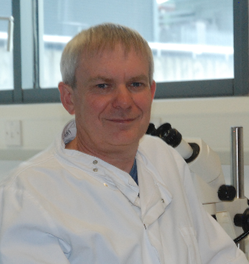
Research Interests: Regulation of Notch receptor signalling. The control of cell differentiation during development requires communication between cells via diffusible growth factors and cell-cell adhesion mediated signalling molecules. The Notch receptor is an example of the latter class and regulates the timing and outcome of cell differentiation decisions in many different tissues during development.The Notch signal must be precisely regulated to prevent inappropriate signalling since misactivation of Notch can cause tumours.
Notch was first identified in Drosophila but has subsequently been identified in a range of vertebrate species, including four versions of the gene in humans.
The activity of Notch in vivo is precisely controlled spatially and temporally. Using the Drosophila model system, our group has identified a negative regulator of Notch called Suppressor of Deltex (Su(dx)), which belongs to an E3 class of ubiquitin ligase molecules that regulate endocytosis and proteolytic degradation of target molecules.
We have found that Su(dx) interacts with Notch at the cell surface and determines the subsequent sorting of Notch within the early endosome to enable its transfer to the late endosome. Furthermore we have found that endosomal sorting of Notch distinguishes between alternative mechanisms of Notch signalling.
https://research.manchester.ac.uk/en/persons/martin.baron
Sam Butterworth
Senior Lecturer in Medicinal Chemistry

The Butterworth group work on applying synthetic and biological chemistry to study and solve biological problems of relevance to human health. One key theme of this work is the utilisation of the cell’s biological machinery to selectively activate molecules to kill cancer cells with specific mutations, or to selectively reprogram the activity of key immune cells. We have several breast cancer focussed collaborations with biomedical researchers and clinicians at Manchester and beyond. These include projects with funding from the Wellcome Trust (~£5 million seeding drug discovery award, looking at novel kinase inhibitors in TNBC), CRUK and MRC CiC (together ~£400k, looking at novel kinase modulators as immune-oncology agents in TNBC with Katie Finegan).
https://research.manchester.ac.uk/en/persons/sam.butterworth
Katie Finegan
Senior Lecturer in Cancer Biology and Therapy, Pharmacy

My research group investigates the mechanisms by which mitogen-activated protein kinases (MAPK) regulate cancer biology and therapeutic response, with a particular focus on triple-negative breast cancer. Using a combination of established pharmacological inhibitors, novel and exclusive pre-clinical mouse models, human samples and in vivo techniques, my group’s central aim is to translate findings at the molecular level into valid therapeutic avenues and/or biomarkers of cancer progression and therapy response. Current projects include studies into ERK5 and MEK5 inhibitors, and further characterisation of the role of ERK5 in inflammatory responses and metastatic spread.
https://research.manchester.ac.uk/en/persons/k.g.finegan
Jamie Honeychurch
Senior Research Fellow in Immune Oncology
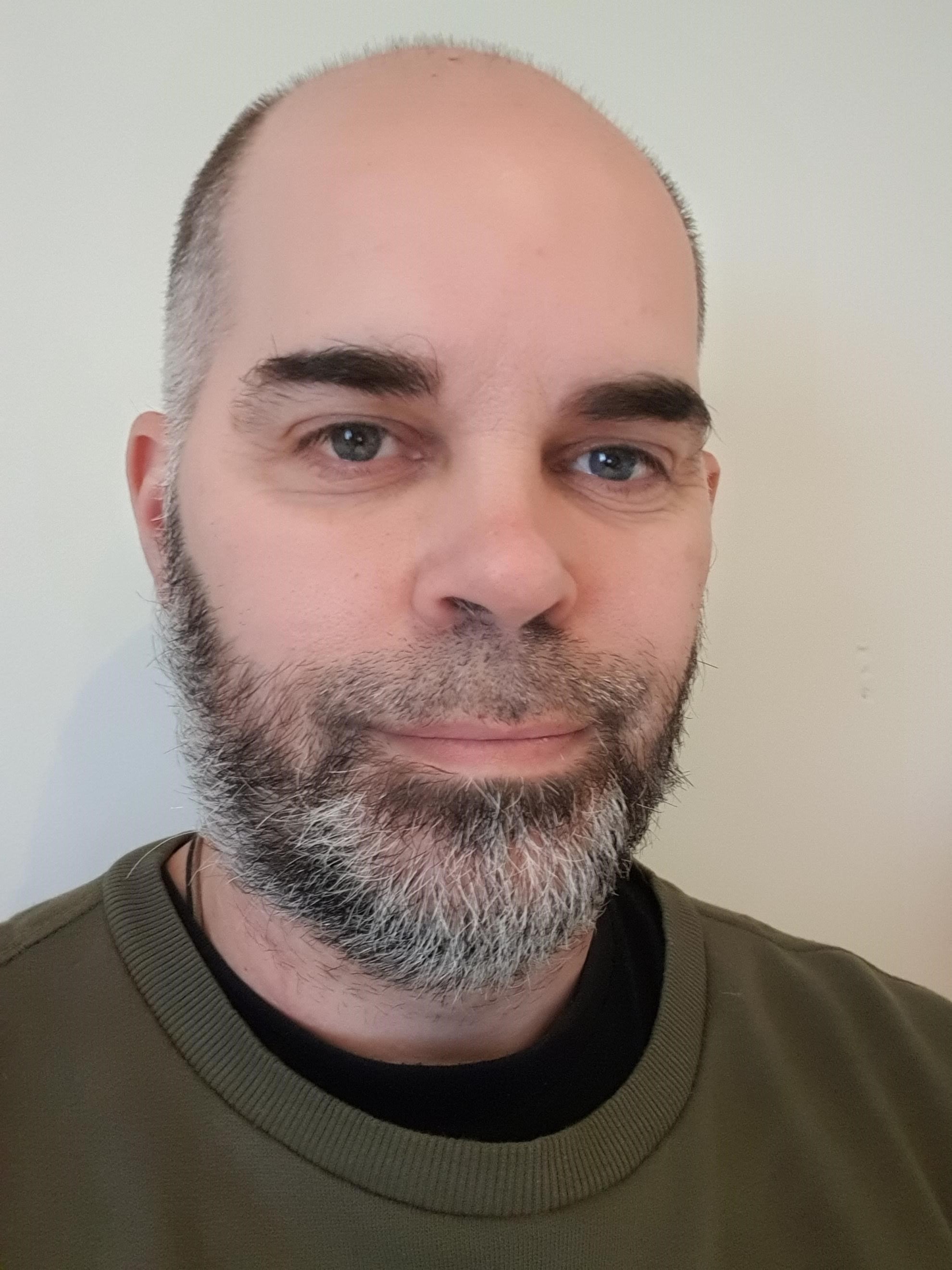 I am a Senior Lecturer within the Targeted Therapy Group at the University of Manchester. My research interests lie in the field of onco-immunology. I have a long-standing interest in developing novel radiation and immunotherapy combinations for the treatment of cancer, primarily using monoclonal antibodies (mAb) targeting various immune receptors to enhance the activity of tumour-specific T-cell priming and function following radiotherapy. More recently, my research has focussed on evaluating the induction of immunogenic cell death (ICD) following radiation therapy and assessing the impact this has on therapeutic outcome during combination approaches. This involves investigation of numerous damage-associated molecular patterns (DAMP), and in particular, the role of high mobility group box 1 (HMGB1) in driving T-cell responses post-radiation and chemotherapy. I am interested in various apsects of HMGB1 biology including the kinetics and mechanism of release; redox staus and post-translational modification; potential utility as a biomarker of response; and the ability to promote tumour repopulation and growth. I am also interested in the mechanism of action of anti-CD20 mAb, especially type II mAb which induce direct cell death in a variety of B-cell malignancies and evaluating the immunological consequences of CD20-induced death, including DAMP release. Potential combination approaches to enhance cell death are also being explored.
I am a Senior Lecturer within the Targeted Therapy Group at the University of Manchester. My research interests lie in the field of onco-immunology. I have a long-standing interest in developing novel radiation and immunotherapy combinations for the treatment of cancer, primarily using monoclonal antibodies (mAb) targeting various immune receptors to enhance the activity of tumour-specific T-cell priming and function following radiotherapy. More recently, my research has focussed on evaluating the induction of immunogenic cell death (ICD) following radiation therapy and assessing the impact this has on therapeutic outcome during combination approaches. This involves investigation of numerous damage-associated molecular patterns (DAMP), and in particular, the role of high mobility group box 1 (HMGB1) in driving T-cell responses post-radiation and chemotherapy. I am interested in various apsects of HMGB1 biology including the kinetics and mechanism of release; redox staus and post-translational modification; potential utility as a biomarker of response; and the ability to promote tumour repopulation and growth. I am also interested in the mechanism of action of anti-CD20 mAb, especially type II mAb which induce direct cell death in a variety of B-cell malignancies and evaluating the immunological consequences of CD20-induced death, including DAMP release. Potential combination approaches to enhance cell death are also being explored.
https://research.manchester.ac.uk/en/persons/jamie.honeychurch
Roger Hunt
Consultant Histopathologist
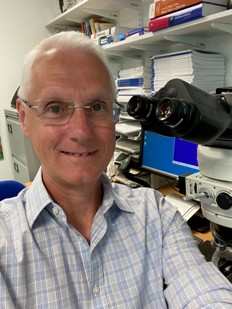
Roger Hunt has been a consultant histopathologist at Wythenshawe Hospital, Manchester since 2011. His special interests include breast pathology, particularly the immunohistochemistry of prognostic and predictive markers. Roger actively supports various aspects of ongoing clinical research at Wythenshawe and has a strong background in multi-professional medical education.
Roger was the Chair of the Greater Manchester Breast Clinical Subgroup from 2007-9. He is a member of the UK NEQAS Immunohistochemistry Scientific Advisory Board and has advised on the revision of national NICE guidelines for early and locally advanced breast cancer and also cancers of unknown primary origin.
Gillian Hutchison
Consultant Radiologist, Manchester University NHS Foundation Trust (MFT)
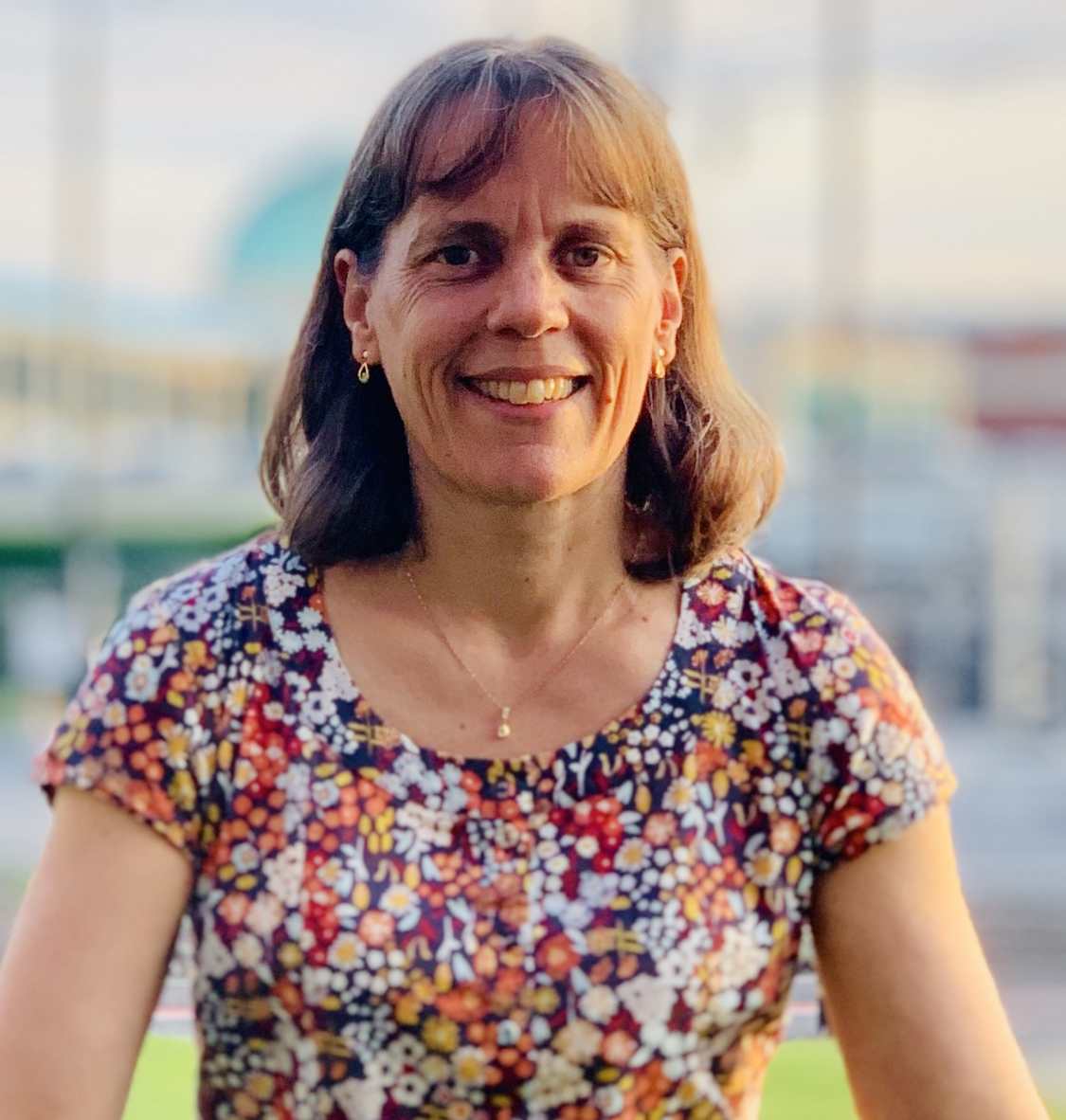 Gillian Hutchison has been a consultant breast radiologist since 2008, first working in the Bolton breast unit and currently in the Nightingale Breast Unit at Wythenshawe Hospital, MFT since April 2016. As Director of Breast Screening for Manchester, her main areas of interest are in early detection of breast cancer and personalisation of breast screening, but working in a busy screening and symptomatic service she participates in local, national and international breast studies. The breast screening unit was part of the Age Extension trial. She has contributed to several breast studies including Mammo 50, Sloane, LORIS, Forget Me Not, and more recently BRAID and Compulse (for which she is PI). Prior to commencing her career in Breast Radiology she investigated factors affecting outcomes in cervical and anal carcinomas and the relationship to hypoxia and treatment as well as the links with HPV and obtained her MD from the University of Manchester in 2009. Aside from Breast Radiology she also has a sub-speciality interest in Fetal Medicine/Imaging.
Gillian Hutchison has been a consultant breast radiologist since 2008, first working in the Bolton breast unit and currently in the Nightingale Breast Unit at Wythenshawe Hospital, MFT since April 2016. As Director of Breast Screening for Manchester, her main areas of interest are in early detection of breast cancer and personalisation of breast screening, but working in a busy screening and symptomatic service she participates in local, national and international breast studies. The breast screening unit was part of the Age Extension trial. She has contributed to several breast studies including Mammo 50, Sloane, LORIS, Forget Me Not, and more recently BRAID and Compulse (for which she is PI). Prior to commencing her career in Breast Radiology she investigated factors affecting outcomes in cervical and anal carcinomas and the relationship to hypoxia and treatment as well as the links with HPV and obtained her MD from the University of Manchester in 2009. Aside from Breast Radiology she also has a sub-speciality interest in Fetal Medicine/Imaging.
Qing-Jun Meng
Professor of Chronobiology
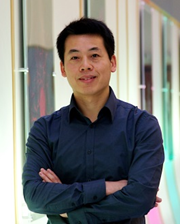 We study 24-hour biological clocks in ageing and age-related diseases. Circadian rhythms are the endogenous 24-hour cycles governing nearly all aspects of our physiology and behaviour, including many fundamental cellular functions. One key area in the lab is to investigate the role of circadian clocks in the biology and pathogenesis of breast cancer. Our earlier work has discovered cell-intrinsic circadian clocks in mammary stem cells and epithelia, which control the expression of hundreds of breast tissue-specific rhythmic genes and respond to the cellular microenvironment and tissue stiffness (Blakeman et al, Breast Cancer Res 2016; Yang et al, Nat Comms 2017; Broadberry et al, Breast Cancer Res 2018; Williams et al, J Cell Sci 2018; Streuli and Meng, J Cell Sci 2019). More recently, we have used clinical breast cancer samples, circadian time series “-omics”, artificial intelligence and machine learning algorithms and quantitative live imaging to investigate the molecular links between circadian clock disruptions and breast cancer development. We are also interested in a “circadian medicine” approach to tailor existing therapies according to the patient’s internal body clocks for better clinical outcomes.
We study 24-hour biological clocks in ageing and age-related diseases. Circadian rhythms are the endogenous 24-hour cycles governing nearly all aspects of our physiology and behaviour, including many fundamental cellular functions. One key area in the lab is to investigate the role of circadian clocks in the biology and pathogenesis of breast cancer. Our earlier work has discovered cell-intrinsic circadian clocks in mammary stem cells and epithelia, which control the expression of hundreds of breast tissue-specific rhythmic genes and respond to the cellular microenvironment and tissue stiffness (Blakeman et al, Breast Cancer Res 2016; Yang et al, Nat Comms 2017; Broadberry et al, Breast Cancer Res 2018; Williams et al, J Cell Sci 2018; Streuli and Meng, J Cell Sci 2019). More recently, we have used clinical breast cancer samples, circadian time series “-omics”, artificial intelligence and machine learning algorithms and quantitative live imaging to investigate the molecular links between circadian clock disruptions and breast cancer development. We are also interested in a “circadian medicine” approach to tailor existing therapies according to the patient’s internal body clocks for better clinical outcomes.
Research in this group has been supported by the MRC, Breast Cancer Now, BBSRC sLoLa, Wellcome Trust and industries. Our research has received extensive media coverage including BBC Breakfast, BBC Radio Stoke, BBC Radio 5, BBC Radio Manchester.
https://research.manchester.ac.uk/en/persons/qing-jun.meng
Nancy Papalopulu
Professor of Developmental Neuroscience & Wellcome Trust Senior Research Fellow
 During development, cells transition from a progenitor state to differentiation with defined timing, or to quiescence from which they may be reactivated. Understanding how such transitions and their timing are regulated is key in understanding how tissues are built, maintained, repaired or subverted in disease.
During development, cells transition from a progenitor state to differentiation with defined timing, or to quiescence from which they may be reactivated. Understanding how such transitions and their timing are regulated is key in understanding how tissues are built, maintained, repaired or subverted in disease.
In recent years, our understanding of how cells make cell state transitions has been transformed by the application of single cell molecular technology that revealed a large degree of non-genetic heterogeneity in seemingly homogeneous populations of cells. In neural progenitors, single cell imaging with unstable reporters has revealed asynchronous pulsatile fluctuations in regulatory gene expression, which is masked by static measurements of population averages. Thus, cell fate transitions may not be driven simply by genes being turned on or off, but by a change in the dynamics of gene expression for example, from fluctuating or pulsatile expression to a more stable state.
https://research.manchester.ac.uk/en/persons/nancy.papalopulu
Isabel Pires
Lecturer in Cancer Biology, Tumour Hypoxia Biology
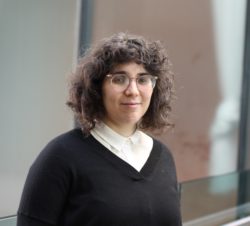 Work in Dr Isabel Pires’ lab focuses on the continued evaluation of hypoxia biology both in the context of improved therapeutic outcomes and of novel biomarker value. We are particularly interested in exploring hypoxic biology therapeutically in the context of radiotherapy resistance, as well as novel radio sensitising strategies. Finally, we are looking at the impact of interstitial fluid flow (IFF) in tumour biology, particularly its interaction with hypoxic biology, using their ‘spheroid-on-chip’ microfluidic model.
Work in Dr Isabel Pires’ lab focuses on the continued evaluation of hypoxia biology both in the context of improved therapeutic outcomes and of novel biomarker value. We are particularly interested in exploring hypoxic biology therapeutically in the context of radiotherapy resistance, as well as novel radio sensitising strategies. Finally, we are looking at the impact of interstitial fluid flow (IFF) in tumour biology, particularly its interaction with hypoxic biology, using their ‘spheroid-on-chip’ microfluidic model.
Isabel did her PhD at the University of Manchester/CRUK Manchester Institute with Professor Caroline Dive. She then moved to the University of Oxford for a postdoc in Professor Ester Hammond’s group at the Department of Oncology. There she became interested in how hypoxic biology leads to alterations in cellular behaviour, such as increased genomic instability, resistance to therapy, and increased metastatic potential. She then moved to the University of Hull to start her first independent position (lecturer and later senior lecturer), where she continued her interest in hypoxic biology and radiobiology. Isabel moved back to Manchester (Division of Cancer Sciences/MCRC) in March 2023.
https://research.manchester.ac.uk/en/persons/isabel-pires
Susan Pritchard
Consultant histopathologist
I am a Consultant Histopathologist with 15 years’ experience working at Manchester Foundation Trust Wythenshawe Hospital, subspecialising in breast pathology. Our unit reports over 1000 breast cancers per year, being one of the largest in the UK. My work is predominantly clinical, including work for the NHS Breast Screening programme, for which I am one of the North of England’s Clinical Professional Advisors. My main research interests are in the prevention of breast cancer, offering histopathological advice to surgeons and oncologists working in this field.
Paul Shore
Associate Dean for Pedagogic Development, Senior Lecturer
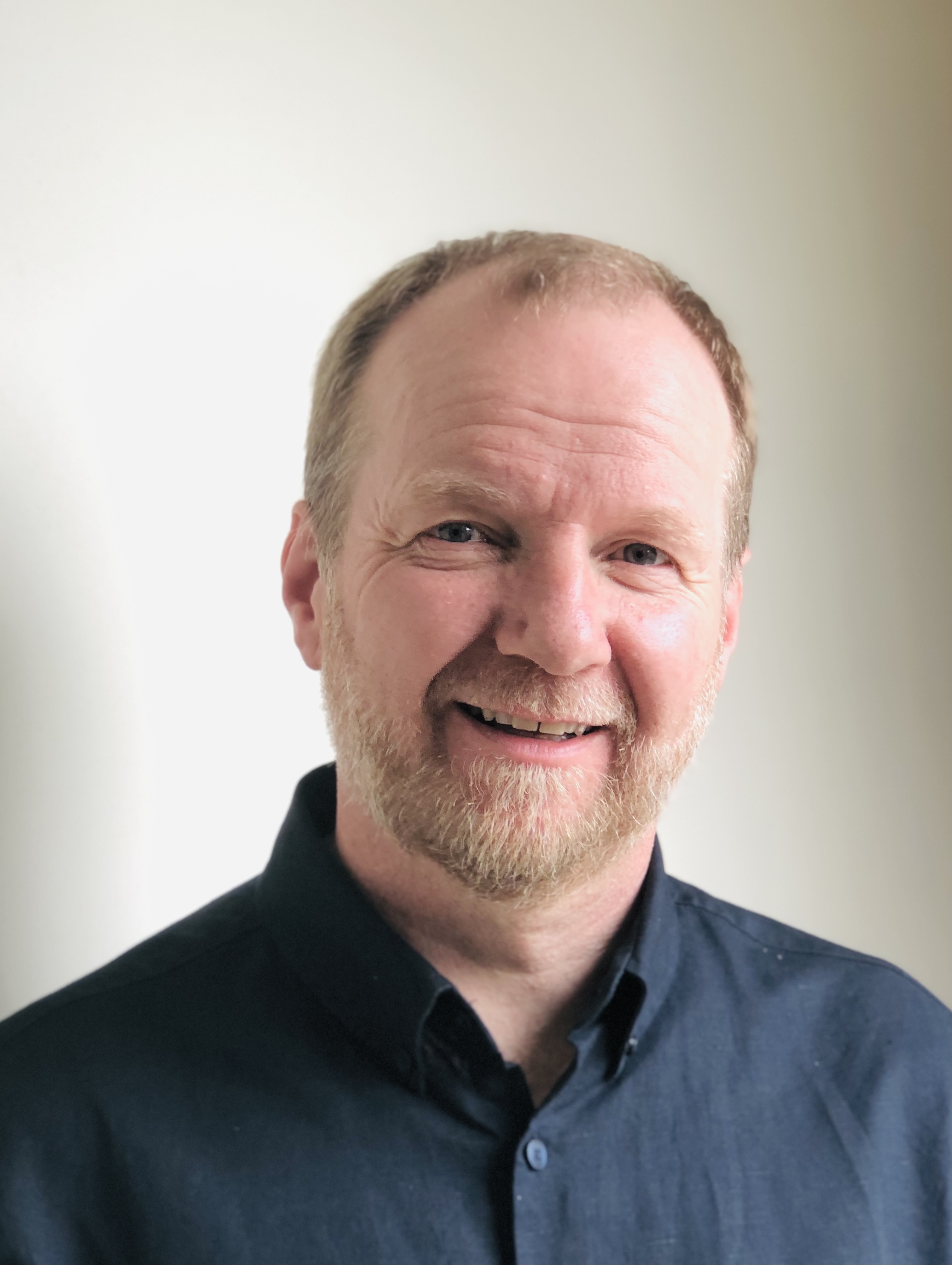 Research interests: Transcription Factors in Human Disease
Research interests: Transcription Factors in Human Disease
Role of Runx2 in bone metastasis. Breast and prostate cancers preferentially spread to bone. Bone metastases cause extreme bone pain, fractures, nerve compression, and hypercalcaemia; the average survival time for patients is approximately two years. The development of therapies to combat bone metastasis largely depends on identifying new molecular targets for pharmacological intervention. What causes breast and prostate cancer cells to preferentially colonise the bone is largely unknown. However, work in my laboratory on the transcription factor Runx2 has revealed a fundamental molecular link between breast and bone-specific gene expression (Inman and Shore, 2003; Inman et al, 2005, Shore, 2005). Evidence is now accumulating that Runx2 controls metastatic cell invasion and contributes to tumour growth and osteolytic disease. Our ongoing research is focussed on identifying Runx2-regulated genes in metastatic cancer cells that contribute to invasion and early colonization phases of the bone microenvironment.
Regulation of Runx2 function
The transcription factor Runx2 is essential for development of the skeleton whereas Oct-1 is a ubiquitous transcription factor involved in the regulation of numerous genes. We have recently identified a novel complex formed between these two important transcription factors (Inman et al, 2005). We are using a “ChIP on chip” approach to identify Runx2/Oct-1 target genes. We have also shown that Oct-1 counteracts auto-inhibition of Runx2 DNA-binding to stimulate the formation of the Runx2/Oct-1 complex. Auto-inhibition of DNA-binding is a potent mechanism to repress the activity of a transcription factor and mechanisms to counteract it are often central to the regulation of transcription factor function. We therefore aim to elucidate the molecular mechanism of Runx2 auto-inhibition and establish the extent to which other Runx2-interacting partners modulate auto-inhibition.
https://research.manchester.ac.uk/en/persons/paul.shore
Kate Williams
Consultant Oncoplastic Breast Surgeon and Clinical Director for Breast Surgery, North Manchester General Hospital

Kaye Williams
Professor of Experimental Therapeutics
 Kaye currently leads a multi-disciplinary team who work towards producing proof of concept data to support the translation of novel anti-cancer approaches into patients. She has specific interests in the tumour microenvironment, particularly the condition of hypoxia, and how to therapeutically target this to improve cancer outcomes. Kaye also has a keen interest in the use of molecular targeted and/or biological therapies in combination with radiation treatment. In particular she has investigated the impact of novel agents on the underlying mechanisms that govern radiation response to enable their optimal application in a clinical radiotherapy context. These studies have underpinned ongoing clinical trials within The Christie, Manchester, and nationally that are showing positive patient benefit. Kaye has a lead role in the development of pre-clinical imaging for oncology applications within the Manchester Cancer Research Centre. The focus here is to develop, validate and apply image derived biomarkers to assess changes in tumour biology and therapeutic response.
Kaye currently leads a multi-disciplinary team who work towards producing proof of concept data to support the translation of novel anti-cancer approaches into patients. She has specific interests in the tumour microenvironment, particularly the condition of hypoxia, and how to therapeutically target this to improve cancer outcomes. Kaye also has a keen interest in the use of molecular targeted and/or biological therapies in combination with radiation treatment. In particular she has investigated the impact of novel agents on the underlying mechanisms that govern radiation response to enable their optimal application in a clinical radiotherapy context. These studies have underpinned ongoing clinical trials within The Christie, Manchester, and nationally that are showing positive patient benefit. Kaye has a lead role in the development of pre-clinical imaging for oncology applications within the Manchester Cancer Research Centre. The focus here is to develop, validate and apply image derived biomarkers to assess changes in tumour biology and therapeutic response.
https://research.manchester.ac.uk/en/persons/kaye.williams
Sarah Woolner
Wellcome Trust/Royal Society Sir Henry Dale Fellow
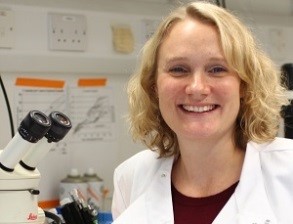 The tissues of our bodies are extremely complicated at the cellular level, comprising different types of cells arranged with precise geometry. Within this complex system, the direction in which a cell divides is a crucial tool used to shape tissues and determine cell fate. Defects in division orientation have lethal consequences: they cause failures in embryonic development and are associated with cancer.
The tissues of our bodies are extremely complicated at the cellular level, comprising different types of cells arranged with precise geometry. Within this complex system, the direction in which a cell divides is a crucial tool used to shape tissues and determine cell fate. Defects in division orientation have lethal consequences: they cause failures in embryonic development and are associated with cancer.
To coordinate cell division across a tissue, cells must be able to “read” their external cellular environment and orient their division accordingly. The mechanisms that control this remain unclear, but we know that cues from the extracellular matrix play a vital role. These cues must be fed to a cellular structure called the mitotic spindle, the positioning of which determines cell division orientation. Understanding the mechanisms used by the cell to correctly position the spindle is a key focus of our lab. In particular, we are investigating how molecular forces are balanced inside the cell to position the mitotic spindle and how these internal mechanisms are linked to the external cellular environment in order to coordinate spindle orientation across a tissue.
https://research.manchester.ac.uk/en/persons/sarah.woolner
Santiago Zelenay
CRUK MI Group Leader in Immuno-Oncology
 Dr Zelenay obtained his undergraduate degree in biology from the University of Buenos Aires in 2002. As a student he worked on DNA vaccines in the laboratory of Juan Fló. He then undertook his Ph.D. in Immunology at the Institute Gulbenkian of Science in Portugal where he studied regulatory T cells, working with Jocelyne Demengeot and Antonio Coutinho. In 2008, he joined the group of Caetano Reis e Sousa at the Cancer Research UK (CRUK) London Research Institute and later at The Francis Crick Institute, where he was awarded Marie Curie and EMBO fellowships to investigate innate immune receptors and signaling pathways that trigger dendritic cell activation and drive T cell responses against viruses or tumours. In 2015, Dr. Zelenay joined the CRUK Manchester Institute as a Junior Group Leader to form the Cancer Inflammation and Immunity Group. His group focuses on understanding the underlying mechanisms that mediate cancer-inhibitory versus tumour-promoting inflammation in order to design new therapies for cancer patients. In 2017, he received the CRUK Future Leaders in Cancer Research Prize.
Dr Zelenay obtained his undergraduate degree in biology from the University of Buenos Aires in 2002. As a student he worked on DNA vaccines in the laboratory of Juan Fló. He then undertook his Ph.D. in Immunology at the Institute Gulbenkian of Science in Portugal where he studied regulatory T cells, working with Jocelyne Demengeot and Antonio Coutinho. In 2008, he joined the group of Caetano Reis e Sousa at the Cancer Research UK (CRUK) London Research Institute and later at The Francis Crick Institute, where he was awarded Marie Curie and EMBO fellowships to investigate innate immune receptors and signaling pathways that trigger dendritic cell activation and drive T cell responses against viruses or tumours. In 2015, Dr. Zelenay joined the CRUK Manchester Institute as a Junior Group Leader to form the Cancer Inflammation and Immunity Group. His group focuses on understanding the underlying mechanisms that mediate cancer-inhibitory versus tumour-promoting inflammation in order to design new therapies for cancer patients. In 2017, he received the CRUK Future Leaders in Cancer Research Prize.
Suzanne Frank
Advanced Specialist Breast Cancer Pharmacist
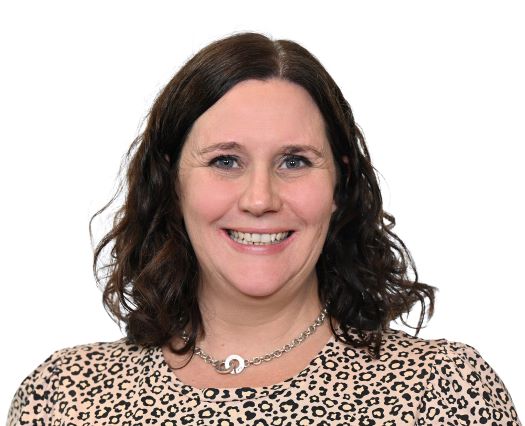 Suzanne has been working as an advanced specialist breast cancer pharmacist at The Christie since 2008. She works in an outpatient clinic setting alongside medical oncology consultants reviewing patients and prescribing systemic anticancer treatment patients with early and secondary breast cancer. She is a member of the Greater Manchester Cancer breast pathway board and is passionate about improving patient pathways and access to breast cancer treatment across the region. Her research interests include assimilating real world evidence on the efficacy and tolerability of systemic anticancer treatments and analysis of treatment pathways and patient experience to inform future service development.
Suzanne has been working as an advanced specialist breast cancer pharmacist at The Christie since 2008. She works in an outpatient clinic setting alongside medical oncology consultants reviewing patients and prescribing systemic anticancer treatment patients with early and secondary breast cancer. She is a member of the Greater Manchester Cancer breast pathway board and is passionate about improving patient pathways and access to breast cancer treatment across the region. Her research interests include assimilating real world evidence on the efficacy and tolerability of systemic anticancer treatments and analysis of treatment pathways and patient experience to inform future service development.